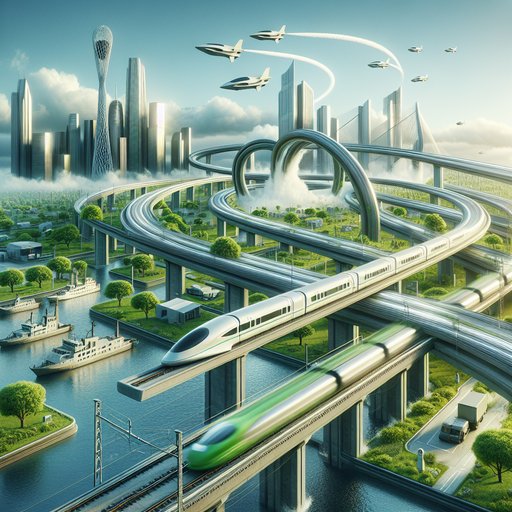
The future of transportation is not just about the vehicles we use, but also the infrastructure that supports them. From bullet trains to hyperloops, and green cargo ships, the world is witnessing a revolution in infrastructure technology that promises to redefine mobility, enhance connectivity, and significantly reduce carbon emissions. This article explores these cutting-edge innovations and their potential societal impact.
The dawn of the 21st century has seen an unprecedented focus on sustainable and efficient transportation. Bullet trains, a symbol of this shift, have transformed intercity travel. With speeds exceeding 300 km/h, these marvels of engineering have drastically reduced travel times, while their electric propulsion systems have significantly lowered carbon emissions compared to traditional trains. The hyperloop, a concept popularized by Elon Musk, is another innovative transportation system that promises to revolutionize travel.
Encapsulating passengers in pods and transporting them through low-pressure tubes at near-supersonic speeds, the hyperloop could make cross-country travel a matter of minutes, not hours. However, the technology is still in its nascent stages, with numerous technical and regulatory challenges to overcome. On the high seas, the advent of green cargo ships is set to make a significant dent in the shipping industry's carbon footprint. These vessels, powered by a combination of wind, solar, and biofuels, aim to make maritime transport more sustainable.
Some designs even incorporate algae-based biofuels and kite sails to harness wind energy. These innovations aren't just about speed and sustainability; they also have the potential to reshape our cities and societies. High-speed rail networks could decentralize urban populations, reducing pressure on overcrowded cities. Hyperloops could redefine the concept of commuting, making it feasible to live in one city and work in another hundreds of miles away.
However, the transition to these new forms of transportation isn't without challenges. Infrastructure costs for systems like the hyperloop are astronomical, and there are significant technical hurdles to overcome. The shift to green shipping requires a complete overhaul of the maritime industry's fuel infrastructure. Despite these challenges, the potential benefits of these innovations are too significant to ignore.
They promise a future where travel is faster, cleaner, and more efficient. A future where our cities are less congested, our air is cleaner, and our world is more connected. As we stand on the cusp of this transportation revolution, it's clear that the journey ahead is as exciting as the destination. The innovations in infrastructure technology are not just redefining mobility; they're reshaping our world.























































